
Google Glass: A Vision Ahead of Its Time
Google Glass, faced initial challenges due to its high price, privacy concerns, and limited use cases. Despite its innovative features, Google killed this product in 2023.
Buried in 2024
Humane AI Pin looked like something straight out of a sci-fi movie, promising to help us get stuff done. However, it turned out the real world is a bit messier than they thought?
The design was sleek, AI Pin was supposed to replace your phone. Yet, it didn't work well.
Why buy it when your phone does the same things for less?
In this game, you’ll step into the shoes of AI Pin user, navigating a world where every action takes ages. See if you can keep your cool as you wait for simple tasks to complete.
Remember, patience is a virtue… especially when you’re using AI Pin!
It's an interesting idea that is so thoroughly unfinished and so totally broken in so many unacceptable ways.
David Pierce, VERGE
The Humane AI Pin had some serious issues that made it hard to use and love. These problems stopped it from being successful:
At $699 upfront, plus a $24 monthly subscription, and then additional taxes, it is more expensive than a good smartphone, which you can often get for around $200 with just a standard monthly phone plan.
Each query and action takes plenty of time ( average 7 seconds) because AI pin has to process the information, connect to the cloud to get the answer, then deliver it to the user.
Inconsistent, over-heating and constant check is really concerning and refuses to work when it over heats.
The device does not sync with phones or handsets. To perform any action, users need to access Humane’s website, which makes the process less convenient.
Humane AI Pin exists to replace smartphone, promising a hand-free mode for users. Let’s see if it can do what it’s expected to do.
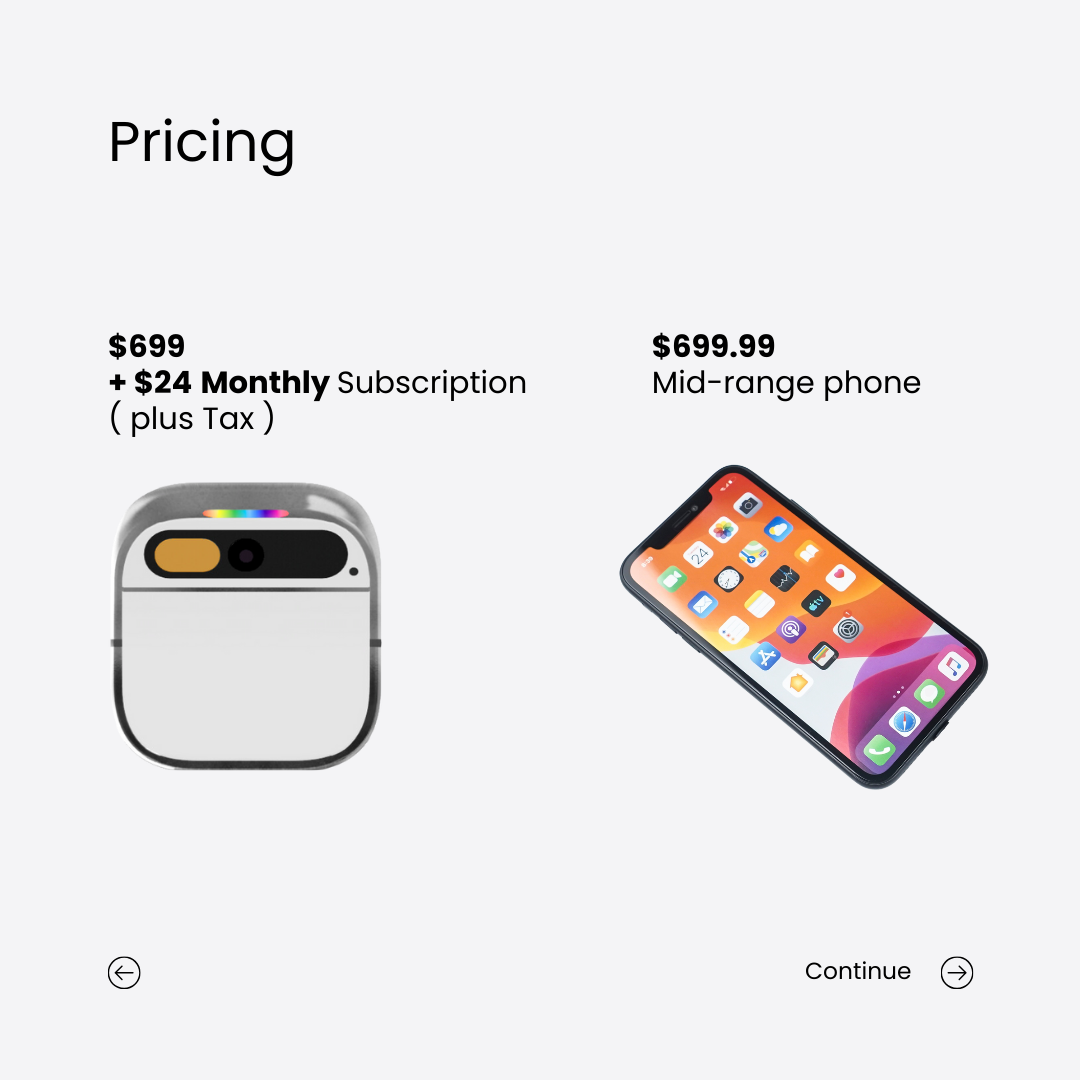
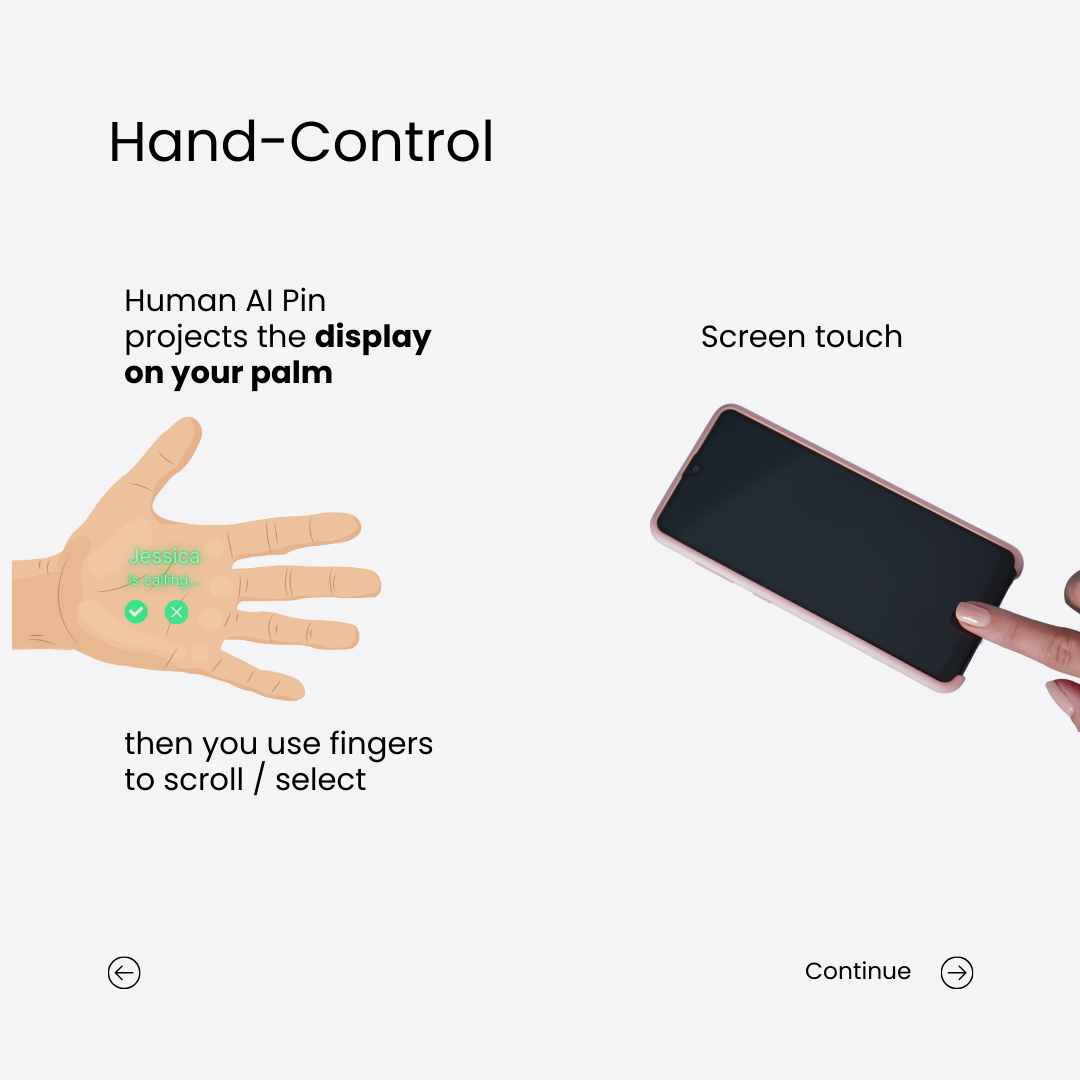
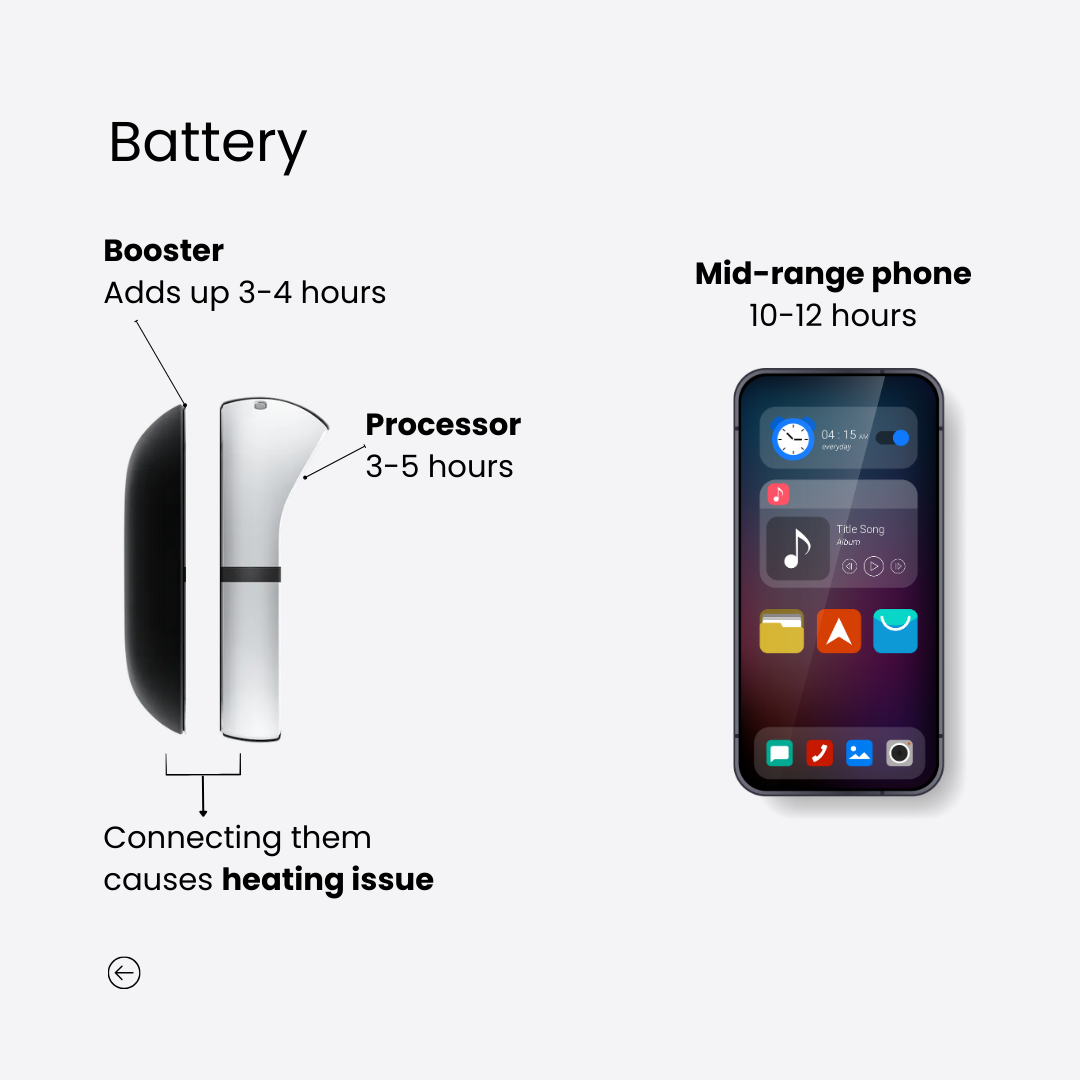
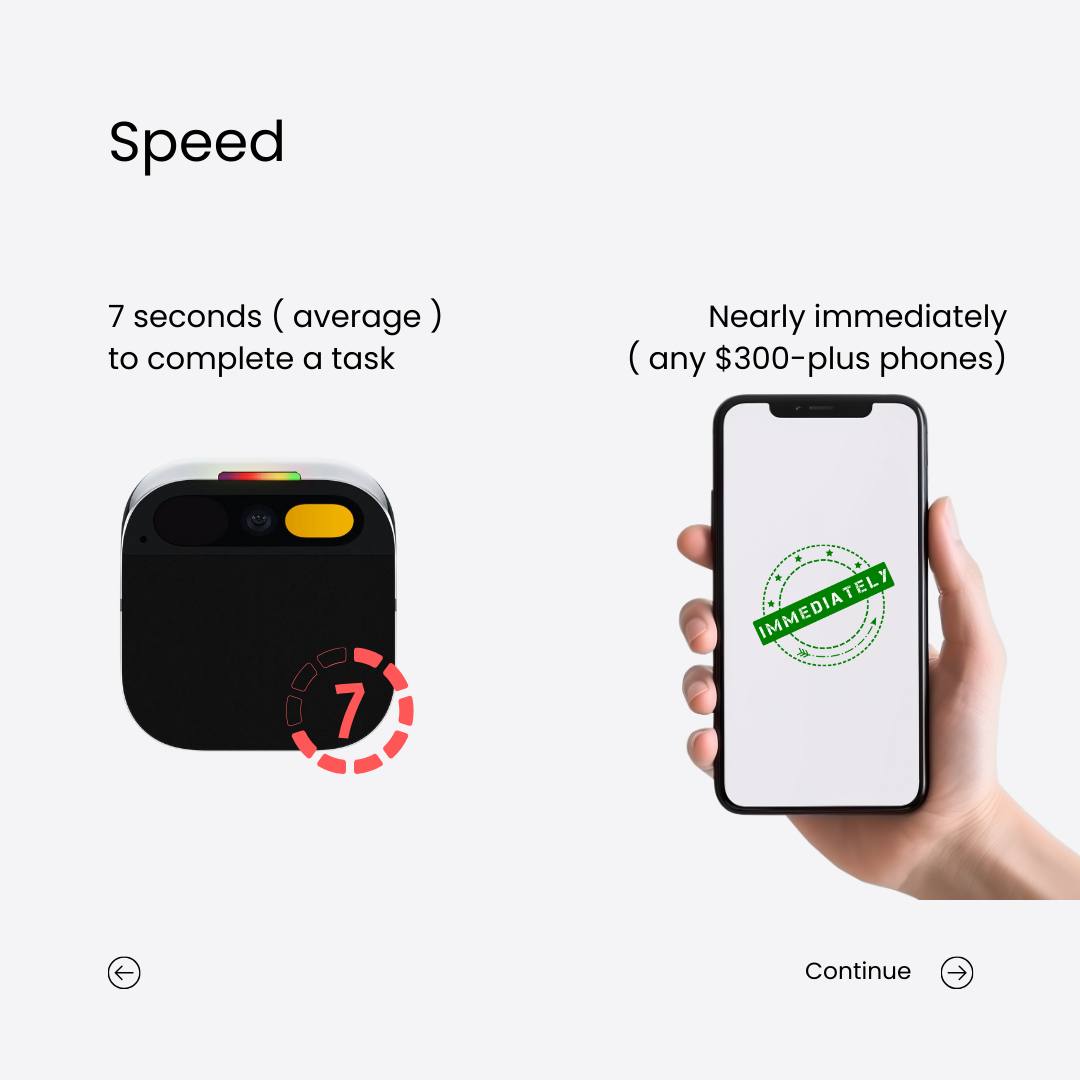
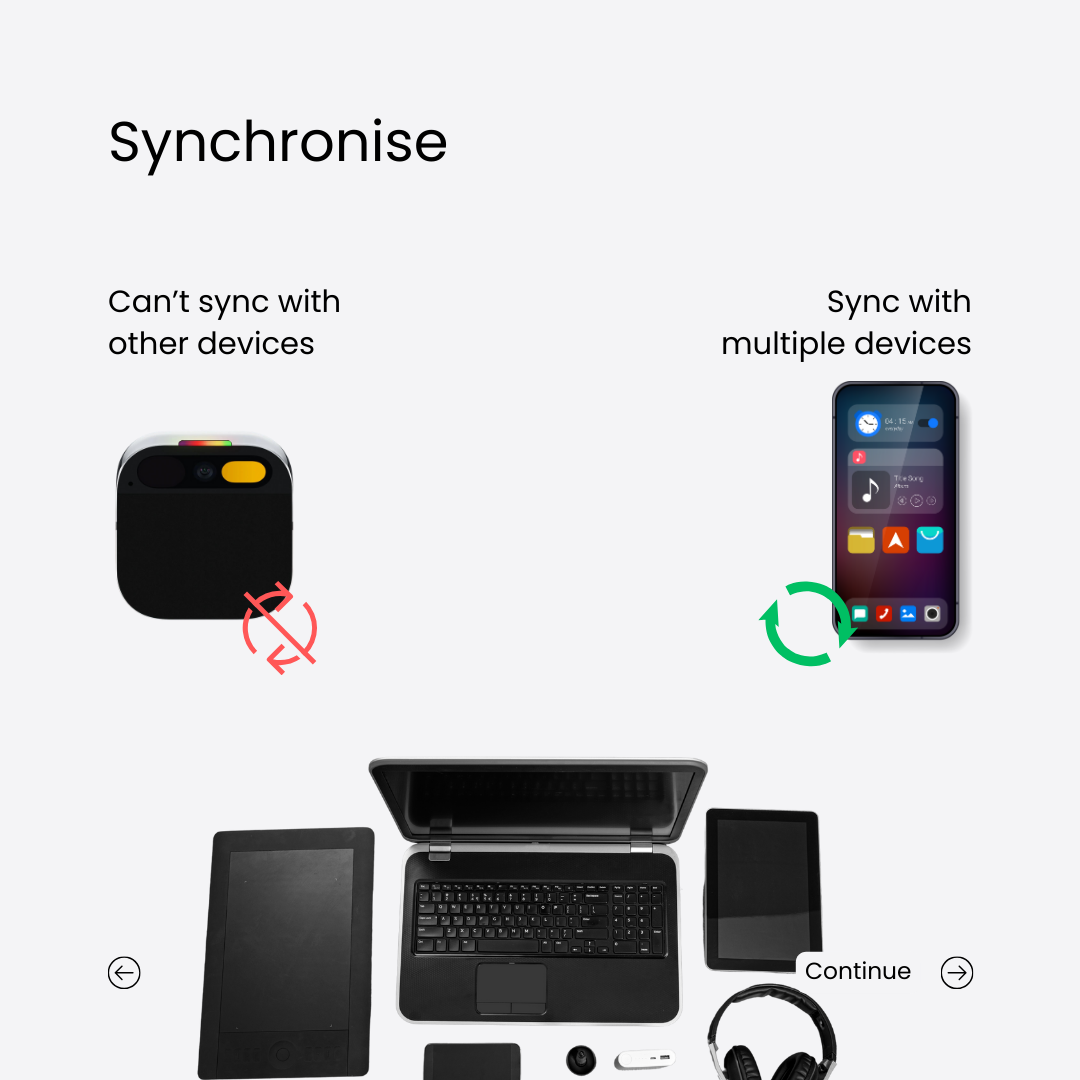





The device refuses to do what I ask of it, EVEN RESTART & SHUTDOWN. Sometimes does entirely unexpected.
— Engadget
Humane AI Pin was introduced, generating significant buzz and excitement
The AI Pin finally hit the market, receiving overwhelmingly negative, citing poor user experience and a lack of functionality.
Humane AI Pin faced significant returns, with more returns than sales between May and August. Humane started looking for a buyout.
swipe right to start reading again
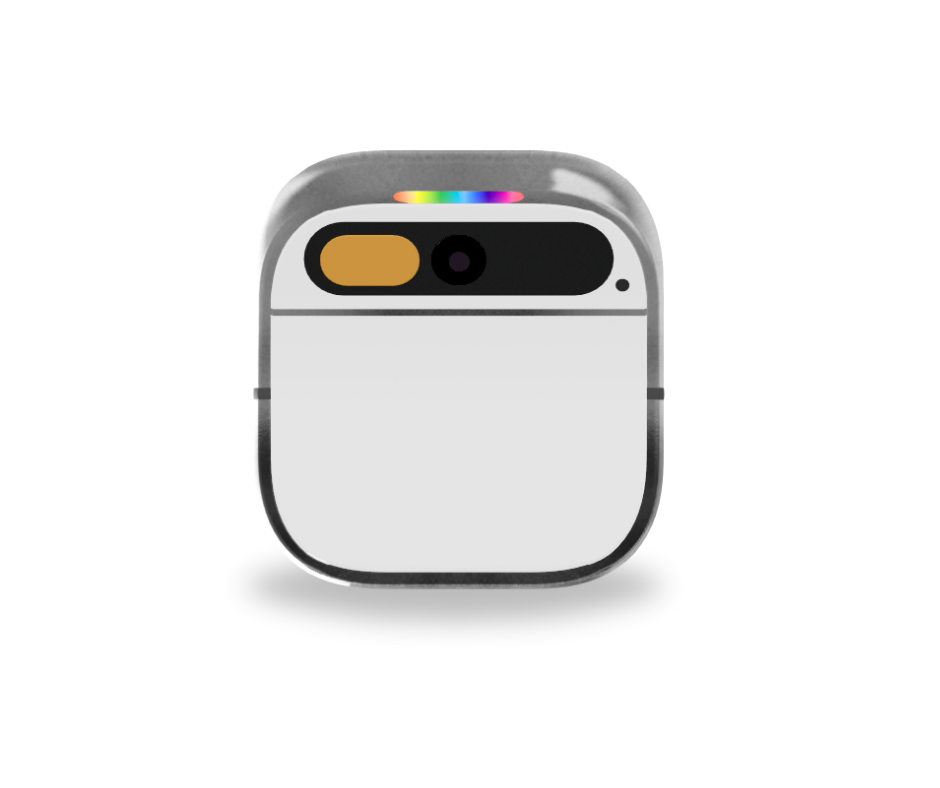

Humane AI Pin created a huge BUZZ with a promise to become a smartphone killer. Its physical design is pretty impressive. In the end, it simply couldn’t deliver on its core promise: to be a truly functional and useful device.
Humane wanted the AI Pin to replace smartphones, but it didn’t do anything much better than what our phones are doing. Humane AI Pin reminds us about the importance of real user cases. Without a clear value proposition, consumers will struggle to justify adopting a new, unproven technology.
To be successful, the AI Pin needed to work really well and be easy to use. People wanted it to understand their voice commands, respond quickly to their gestures, and provide helpful information based on what was happening around them.
But it often misunderstood what people said, was slow to respond, and didn’t always give relevant information. Plus, it got too hot sometimes. These problems made people frustrated, and that’s a big reason why it failed.
Humane’s founders did test the AI Pin before launch, but the feedback wasn’t good. Unfortunately, they seemed to ignore these warnings, prioritising their vision over addressing user concerns. The rest, as they say, is history. This serves as a powerful lesson: ignoring user concerns can lead to painful consequences.

Google Glass, faced initial challenges due to its high price, privacy concerns, and limited use cases. Despite its innovative features, Google killed this product in 2023.
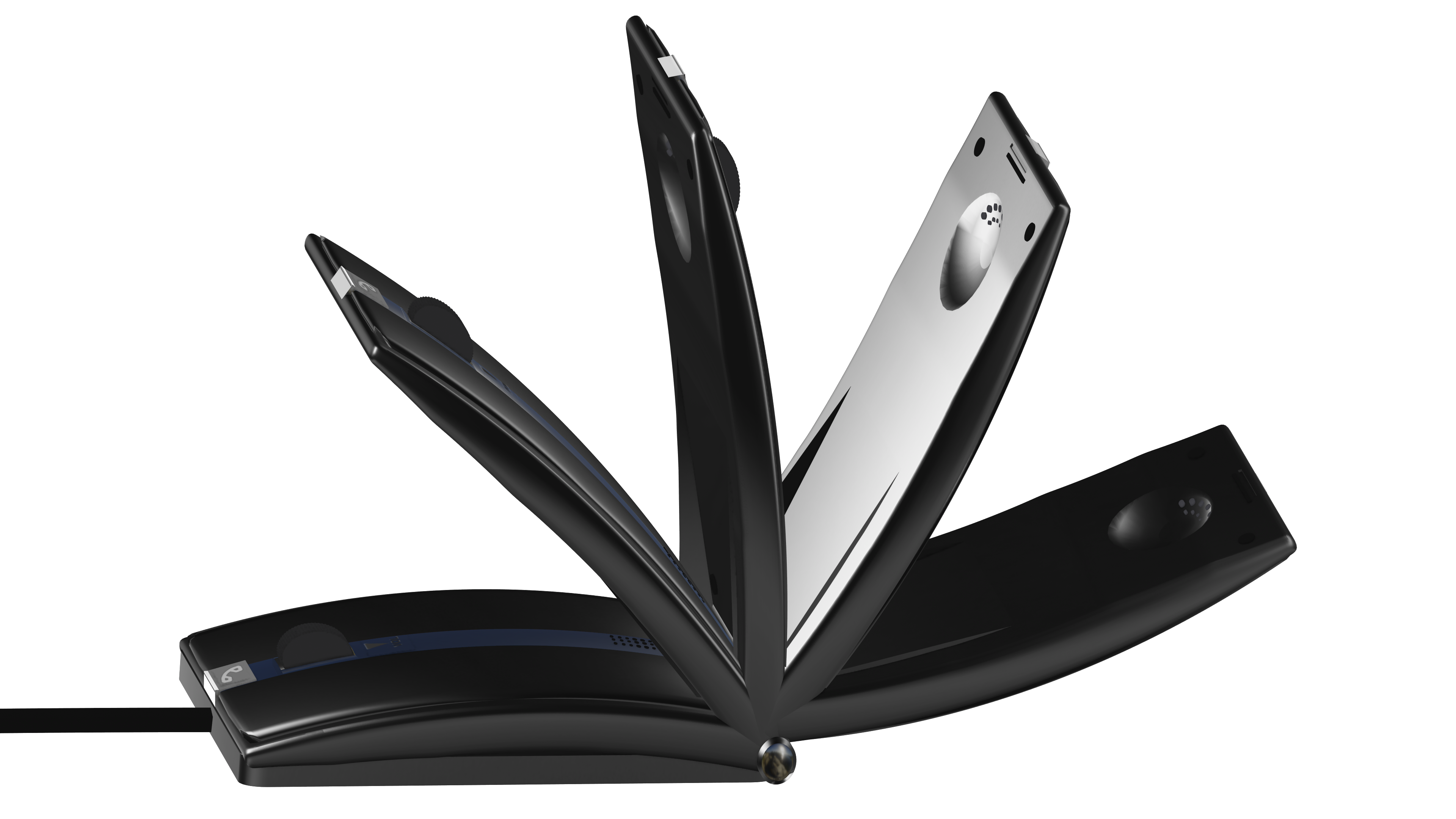
A computer mouse that tried to be a phone but ended up being nothing. What led to this innovative concept’s rapid downfall in less than a year?
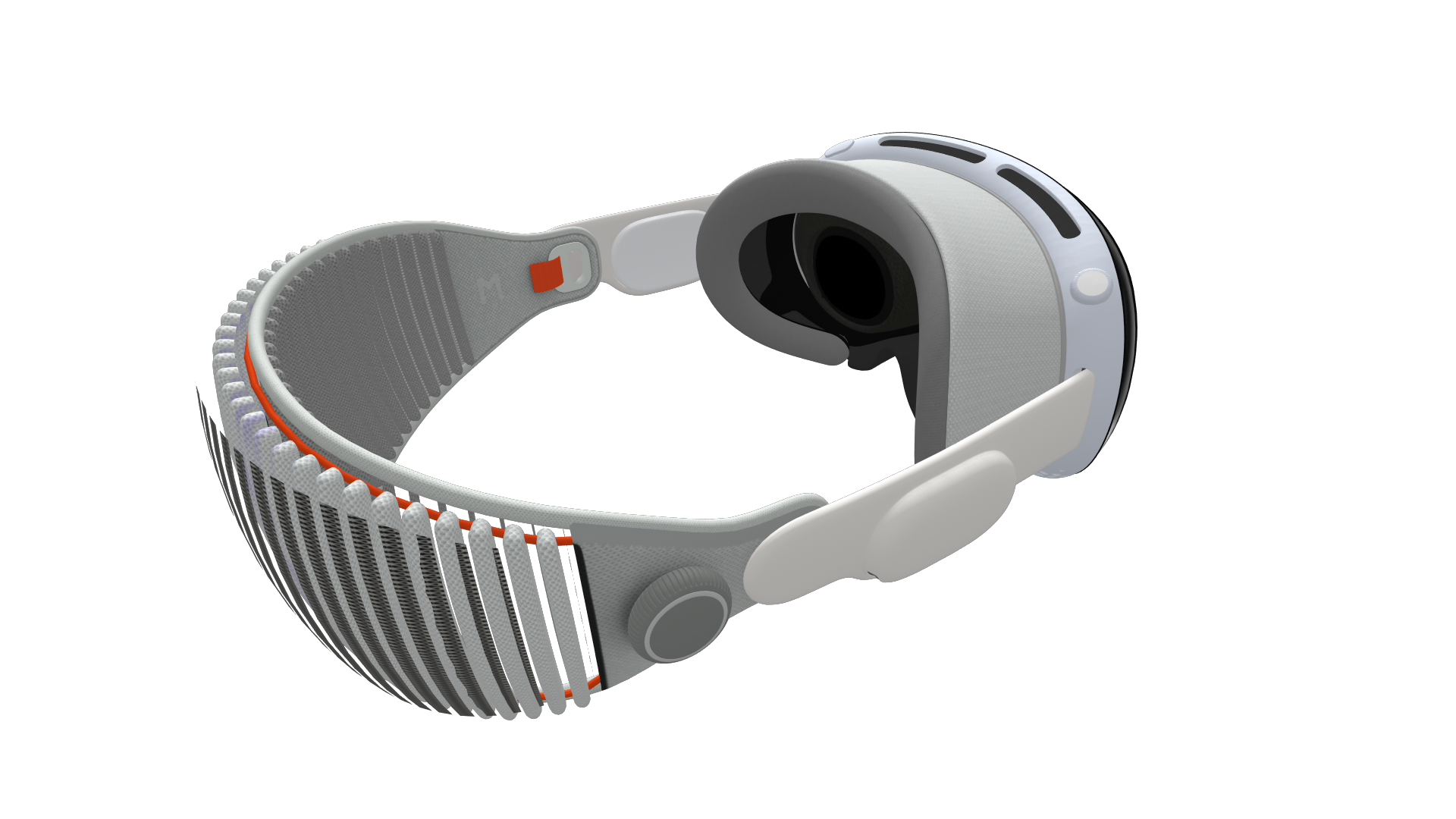
Can a $3,500 headset change how we interact with technology? Apple certainly thought so, but now they aren’t so sure anymore.